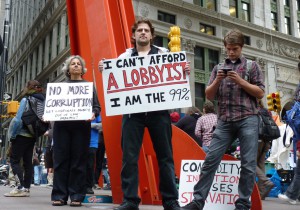Simon Wren-Lewis compares balanced budget fundamentalism to anti-evolutionists:
Europeans, and particularly the European elite, find popular attitudes to science among many across the Atlantic both amusing and distressing. In Europe we do not have regular attempts to replace evolution with ‘intelligent design’ on school curriculums. Climate change denial is not mainstream politics in Europe as it is in the US (with the possible exception of the UK). Yet Europe, and particularly its governing elite, seems gripped by a belief that is as unscientific and more immediately dangerous. It is a belief that fiscal policy should be tightened in a liquidity trap.
In the UK economic growth is currently strong, but that cannot disguise the fact that this has been the slowest recovery from a recession for centuries. Austerity may not be the main cause of that, but it certainly played its part. Yet the government that undertook this austerity, instead of trying to distract attention from its mistake, is planning to do it all over again. Either this is a serious intention, or a ruse to help win an election, but either way it suggests events have not dulled its faith in this doctrine.
Europe suffered a second recession thanks to a combination of austerity and poor monetary policy. Yet its monetary policymakers, rather than take serious steps to address the fact that Eurozone GDP is stagnant and inflation is barely positive, choose to largely sit on their hands and instead to continue to extol the virtues of austerity. (Dear ECB. You seem very keen on structural reform. Given your performance, maybe you should try some yourself.) In major economies like France and the Netherlands, the absence of growth leads to deficit targets being missed, and the medieval fiscal rules of the Eurozone imply further austerity is required. As Wolfgang Munchau points out (August 15), German newspapers seem more concerned with the French budget deficit than with the prospect of deflation.
There is now almost universal agreement among economists that tightening fiscal policy tends to significantly reduce output and increase unemployment when interest rates are at their lower bound: the debate is by how much. A few argue that monetary policy could still rescue the situation even though interest rates are at their lower bound, but the chance of the ECB following their advice is zero.
Paul De Grauwe puts it eloquently.
“European policymakers are doing everything they can to stop recovery taking off, so they should not be surprised if there is in fact no take-off. It is balanced-budget fundamentalism, and it has become religious.”


















